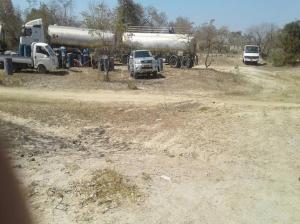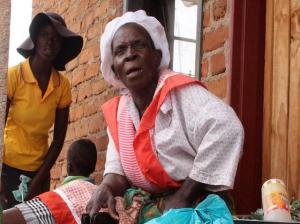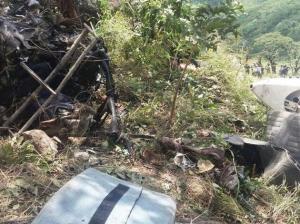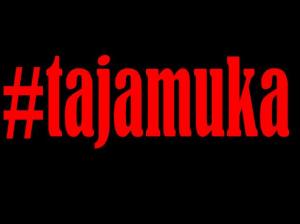Take heed of anthrax warning says Dr Nyadundu

Published: 2014 January 10 11:09:10 (6923 Views)
FEW people are aware of the adverse effects of anthrax, a highly contagious disease of domestic animals, which can also affect humans.
The disease can wipe out an entire herd of cattle if not vaccinated and the affected animals quarantined.
The recent anthrax outbreak in Makoni district which broke out during the festive season last year is a cause for concern.
At least 40 cases have been recorded so far and the numbers are increasing daily. The first case was reported on 20 December.
On Monday a team of veterinarians was dispatched to Makoni to investigate the root cause of the outbreak and disinfect the affected areas.
The Manicaland Provincial Medical Director, Dr Simon Nyadundu, on Monday, however, revealed that the outbreak is now under control in Makoni, but said another outbreak had erupted in Chipinge.
“In Makoni we are informed that the anthrax outbreak was a result of infected carcasses that were sold to villagers from Rugoyi, Chimbike, Chikuruwo and Karani villages during the festive season last year.
“We have also just received reports from Chipinge where 12 cases of anthrax have been reported, but we are not sure of the root cause yet,” said Dr Nyadundu.
Dr Nyadundu said although veterinarians have already been sent out to investigate and deal with the outbreaks, the control of anthrax is very complex and complicated without the full corporation of villagers.
“The Department of Veterinary Services cannot work in isolation to control the disease.
“We need maximum co-operation from all villagers and farmers because anthrax can wipe out animals from cattle, sheep, goats, dogs, pigs you name it, if an outbreak occurs.”
Dr Nyadundu said anthrax is caused by the bacterium bacillius anthracis. The disease is usually acquired in animals when they drink contaminated water or graze on contaminated pastures.
When the infected animal dies, which can be within two hours shortly after being infected, resistant spores are formed which can survive in the soil for many years thus the need for disinfecting the area.
He said as soon as the carcasses of that infected animal are cut open the blood discharge from the nostrils, mouth and any other tissues can spread the disease.
“People should never cut open the carcass or eat the meat of animals that die suddenly, especially where they suspect anthrax because anthrax is not easily detectable.
“Direct contact with infected animals or inhalation of dust which contains the spores can lead to the contraction in humans, so it is very contagious,” said the PMD.
Although the disease is generally treatable in humans, Dr Nyadundu advised people that would have handled or consumed meat from anthrax infected carcasses to quickly report to the nearest clinic or hospital.
He said the symptoms in humans are usually the formation of sores on the skin, fever and pneumonia, while in the animals it is either sudden death or the animal would be weak and shaky.
He also urged village heads to ensure that in their village there is the annual anthrax vaccinations, usually two to four weeks before the expected seasonal outbreak.
He added that in the event of an outbreak, as in the case of Makoni, there should be vaccination of all animals in the area and restriction of animal movement to old pastures, which could still be contaminated shortly after being disinfected.
“Anthrax has an effective vaccine to prevent the disease which is why the State veterinarians move around seasonally prescribing methods to disinfect areas.
“It can also be prevented if there is the full co-operation of every villager, so that we save the lives of their valuable livestock,” said Dr Nyadundu.
- Manicapost
The disease can wipe out an entire herd of cattle if not vaccinated and the affected animals quarantined.
The recent anthrax outbreak in Makoni district which broke out during the festive season last year is a cause for concern.
At least 40 cases have been recorded so far and the numbers are increasing daily. The first case was reported on 20 December.
On Monday a team of veterinarians was dispatched to Makoni to investigate the root cause of the outbreak and disinfect the affected areas.
The Manicaland Provincial Medical Director, Dr Simon Nyadundu, on Monday, however, revealed that the outbreak is now under control in Makoni, but said another outbreak had erupted in Chipinge.
“In Makoni we are informed that the anthrax outbreak was a result of infected carcasses that were sold to villagers from Rugoyi, Chimbike, Chikuruwo and Karani villages during the festive season last year.
“We have also just received reports from Chipinge where 12 cases of anthrax have been reported, but we are not sure of the root cause yet,” said Dr Nyadundu.
Dr Nyadundu said although veterinarians have already been sent out to investigate and deal with the outbreaks, the control of anthrax is very complex and complicated without the full corporation of villagers.
“The Department of Veterinary Services cannot work in isolation to control the disease.
“We need maximum co-operation from all villagers and farmers because anthrax can wipe out animals from cattle, sheep, goats, dogs, pigs you name it, if an outbreak occurs.”
Dr Nyadundu said anthrax is caused by the bacterium bacillius anthracis. The disease is usually acquired in animals when they drink contaminated water or graze on contaminated pastures.
When the infected animal dies, which can be within two hours shortly after being infected, resistant spores are formed which can survive in the soil for many years thus the need for disinfecting the area.
He said as soon as the carcasses of that infected animal are cut open the blood discharge from the nostrils, mouth and any other tissues can spread the disease.
“People should never cut open the carcass or eat the meat of animals that die suddenly, especially where they suspect anthrax because anthrax is not easily detectable.
“Direct contact with infected animals or inhalation of dust which contains the spores can lead to the contraction in humans, so it is very contagious,” said the PMD.
Although the disease is generally treatable in humans, Dr Nyadundu advised people that would have handled or consumed meat from anthrax infected carcasses to quickly report to the nearest clinic or hospital.
He said the symptoms in humans are usually the formation of sores on the skin, fever and pneumonia, while in the animals it is either sudden death or the animal would be weak and shaky.
He also urged village heads to ensure that in their village there is the annual anthrax vaccinations, usually two to four weeks before the expected seasonal outbreak.
He added that in the event of an outbreak, as in the case of Makoni, there should be vaccination of all animals in the area and restriction of animal movement to old pastures, which could still be contaminated shortly after being disinfected.
“Anthrax has an effective vaccine to prevent the disease which is why the State veterinarians move around seasonally prescribing methods to disinfect areas.
“It can also be prevented if there is the full co-operation of every villager, so that we save the lives of their valuable livestock,” said Dr Nyadundu.
- Manicapost
You May Like These Videos
Comments

Anonymous user
2014 January 11 06:41:17
Thanx u
Get Zim Metro Updates Alerts
Big Reads

Schoolgirl drops out after continuous 'sexual abuse' by teacher
by Staff Reporter | 2019 August 13 07:42:33
Mugabe Knows Nothing About The Zimbabwe Constitution: MP
by Staff Reporter | 2016 October 01 08:12:02
Zim's Protesting Graduates Risk Losing Degrees For Expressing Anger Against Mugabe
by Staff Reporter | 2016 October 01 07:57:08
Troubled Harare Giants Dynamos Falls Into Another Deep Crisis
by Own Correspondent | 2016 October 01 07:49:17
Grace Mugabe Grovels At Mnangagwa, Says I Did Not Ask Ubaba To Fire You
by Staff Reporter | 2016 October 01 07:31:48
Mugabe Attacks Mawarire, Claims The Exiled Pastor Failed To Divide Zimbabwe
by Staff Reporter | 2016 October 01 07:19:13
Shock As Local Bank Denies 'Rich' Mugabe's Son Heifty Credit
by Own Correspondent | 2016 September 30 19:14:54
Trouble For Police Officers Who Have Been Mercilessly Bludgeoning Protesters
by Staff Reporter | 2016 October 01 07:20:19
Mugabe "Home Coming" And "Thank You" Rally On Cards
by Own Correspondent | 2016 September 23 06:48:24
Prof Moyo Was Dumped By Western Embassies, Claims Mutsvangwa
by Staff Reporter | 2016 September 22 10:08:07
Broke RBZ Tracks Down Zimbabweans Living Outside The Country Over Taxi
by Staff Reporter | 2016 September 22 09:16:20
You Are Too Old To Lead, Aging Zim President Mugabe Told
by Own Correspondent | 2016 September 22 07:19:25
Anti-Corruption Commission Loses Property In Failed Probe
by Own Correspondent | 2016 September 20 03:18:19
SHOCKING:14 Year Old HIV-Positive Boy Rapes 7 Pupils
by Own Correspondent | 2016 September 20 00:04:55

 WATCH: Victims Narrate Ordeal After Being Clobbered By Riot Cops
WATCH: Victims Narrate Ordeal After Being Clobbered By Riot Cops FLASHBACK: Morgan Tsvangirai Won't Resign Despite Illness
FLASHBACK: Morgan Tsvangirai Won't Resign Despite Illness  Police Violently Beat Harare Protesters
Police Violently Beat Harare Protesters  Zimbabwean Man Who Was Shot By Tswana Employer Appeals For Help
Zimbabwean Man Who Was Shot By Tswana Employer Appeals For Help











.jpg)






